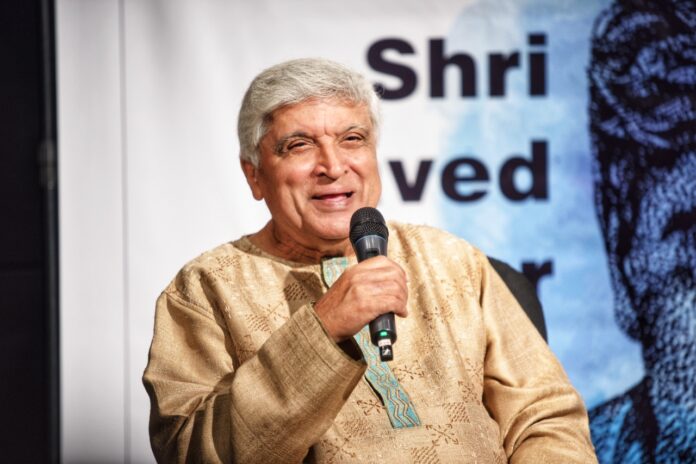Javed Akhtar interacts with Dr Jabbar Patel and Press at the the Pune International Film Festival (PIFF)
Pune, : OTT is a wonderful medium that has given creators a platform to narrate bold and complex stories, expressed Javed Akhtar, acclaimed poet, lyricist, screenplay writer and social activist during an interactive session with the Press at the ongoing 20th Pune International Film Festival (PIFF). Dr. Jabbar Patel, veteran filmmaker and the festival director of PIFF moderated the discussion.
Akhtar while speaking about the changes in the Indian cinema and entry of the OTT platforms, highlighted that some stories cannot be told in just 2 hours, they may require the narration of 10 to 12 hours and that is made possible only by the OTT platforms.
While reflecting on the changes of the Indian Cinema, Akhtar drew attention to the changing characters of the protagonists. He said, “From 60s to the 80s, most of the Heroes of the films were from the working class. In the 90s it changed and the protagonist was from a rich class belonging to a big Indian family and roamed around on the roads of Switzerland. But now, that has also changed,” he said.
He added that along with the web series, even the cinema that is shown in the multiplex is telling the stories of the small towns. “Recently you must have observed that there are series of films that tell the stories of people from the small towns of India. These stories have come out of the curiosity of the young urban generation who are not surprised by the material and technological development. They are more interested in asking who they are and what their roots are,” said Akhtar.
Akhtar also talked about the necessity of creating single screen theatres to ensure that even small budget films could get a release and make money. Emphasizing on the losses incurred by the single screen theatres and filmmakers during the pandemic, he said that establishing theatres have become the need of the hour. “In a vast country like India, there are only a few thousand theatres. This limits the distribution of the film and also its access to commoners. It is important that state and central governments take an initiative to develop a policy to establish small theatres across India, to enable the release of even smaller films. Financing a film should not be the focus but releasing it should be,” said Akhtar.
Akhtar spoke at length about the importance of language, while responding to the question about today’s language on the streets and social media being loud and not profound. He said, “It is not the fault of the current generation but of people from my generation who were engrossed in achieving material wealth. In this process, we did not teach the importance of language to the younger generation. We discouraged them from reading poetry or performing an art. We made them a generation that is only capable of earning wealth that can be stored in the banks.”
He further added that this young generation has also lost the connection to their mother tongue. “Language is a vehicle of culture and tradition. It is a medium that gives us wisdom and ethos. Only that person who knows his mother tongue can have a rooted identity. It is important to teach children their own language,” said Akhtar.
Akhtar also spoke about the recent trend of films from regional languages being dubbed in Hindi and finding success at the box office. He said, “Only when you break the language barrier, you know that there are other people that are doing great work.”
He added that when he first came to Mumbai, he discovered Marathi theatre and plays written by Vijay Tendulkar. “I had never seen plays and dramas like that. I truly believe that Vijay Tendulkar is the greatest playwright of India and that is why I created a Vijay Tendulkar Rangmanch in Mumbai from the fund that I received as an MP.”
When asked about the frequency of the films and opinions constantly accused of hurting sentiments of people, Akhtar said such kinds of things are short lived and are only done to gain attention. However, as a society we have always been moderate and have not fallen prey to any kind of extremism. “If we look at our history, we all are the descendants of farmers. Their blood is running in our veins. That is why patience is our virtue. We must be patient while this phase of sensitivity and extremism in language would also pass.”
He also talked about bringing the angle of communalism films. Akhtar said, “Those filmmakers who only care about themselves and their people bring in the angle of communalism in their films. If you look at the credit titles of any film made to be successful and earn money, it would have names of people from all castes, religion and communities.”
While concluding the interaction, he said that the current generation is socially conscious and matured than the earlier generation of filmmakers. “I am hopeful that in the future, our films would be more realistic, will have moral courage and would showcase fantastic stories,” he said.











































